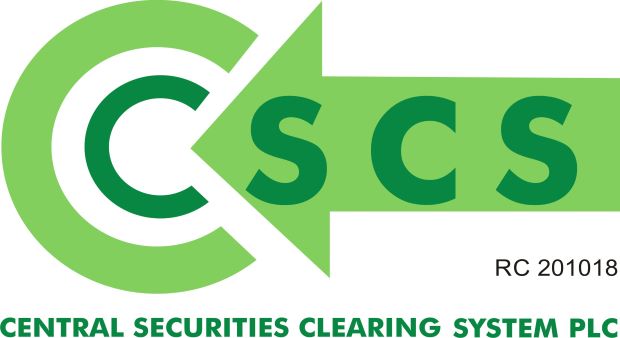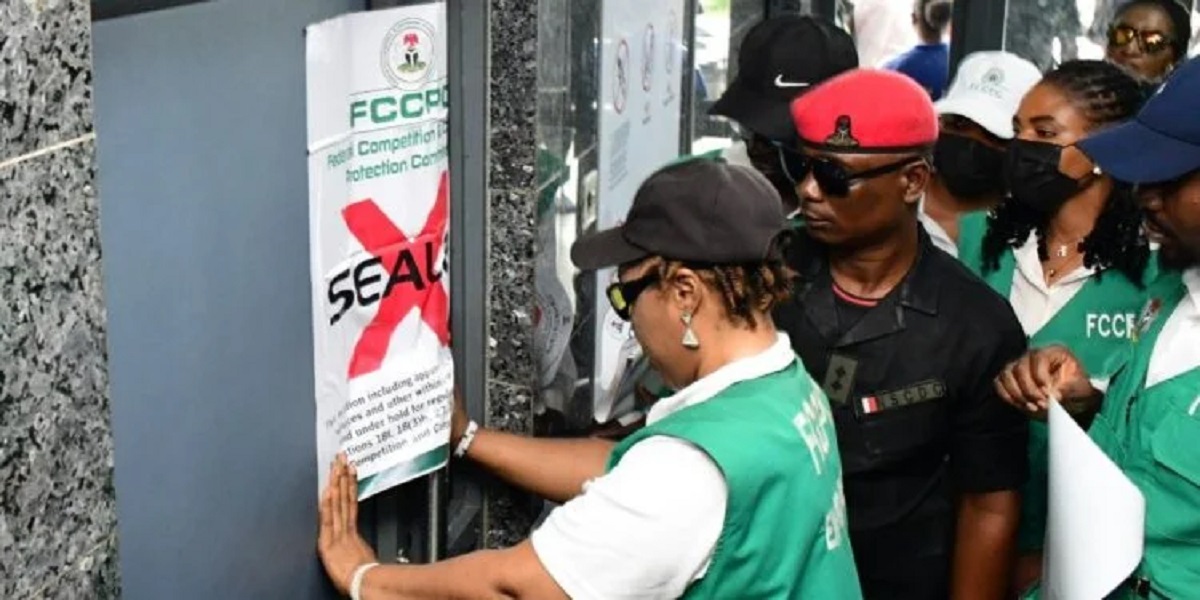News
Central Securities Clearing System Joins ISSA’s Board

ISSA has announced that Central Securities Clearing System plc (CSCS), Nigeria, has become a member organisation of the Board of Directors of ISSA, effective September 2022. Haruna Jalo-Waziri, CEO of CSCS, is accordingly appointed to the Board of ISSA.

The ISSA Board has set themselves the ambition of ensuring the Association is diverse and fit for the 21st Century, composed of a wide spectrum of firms involved in the Securities Services value chain globally.
Welcoming the first African firm as a Board member institution reinforces ISSA’ s aim to ensure relevance and leadership in all regions, and particularly in the growing continent of Africa.
Haruna has over 30 years of experience in financial market. At the early stage of his career, he worked with the Securities and Exchange Commission, the apex regulatory organization of the Capital Markets in Nigeria.
He worked in the investment banking business of Afrinvest West Africa (formerly SECTRUST) and pioneered the Asset Management Department of Kakawa Discount House Limited, which he played active role in transforming to a full fledge company “Kakawa Asset Management Limited” (now FBN Merchant Bank).
He later joined the services of First Alliance Pension & Benefits Limited (now part of ARM Pensions Limited), one of the pioneer pension fund administrators established in Nigeria, partnership with Mcube South Africa. In 2007, he was appointed MD/CEO of UBA Stockbrokers Limited, a subsidiary of United Bank for Africa (UBA Plc).
He successfully transformed the hitherto loss-making entity into a profitable business and saw it grow to become one of the top-5 securities trading companies in Nigeria within three years of his leadership. He thereafter became the MD/CEO of UBA Asset Management Limited.
In 2012, Haruna Jalo-Waziri was appointed the Executive Director, Capital Markets of the Nigerian Stock Exchange (now Nigerian Exchange Group Plc), the premier capital trade point in Nigeria and leading African Exchange. He had primary responsibility for the overall capital market developments.
He implemented key initiatives such as partnership between the Nigerian Stock Exchange andthe London Stock Exchange Group (which berth dual listings of Nigerian corporates on both Exchanges), development of the Green Bond market (with the pioneer instrument being the Nigerian Sovereign Green Bond), introduction of Federal Government Retail Savings Bond, Launch of the NSE Premium Board, and MSCI Index Partnership- GICS Adoption amongst others.
He has been CEO of CSCS for almost 5 years and is the Vice President of the Africa & Middle East Depositories Association (AMEDA). He has recently represented the World Forum of CSDs at the ISSA Operating Committee, so he is ideally suited to join the Board.
Phil Brown, ISSA Chair, stated: “CSCS is a great addition to the ISSA Board, bringing not only in-depth knowledge of Africa, but also a forward-thinking and technologically advanced perspective.
ISSA is committed to building its brand on the continent and ensuring the relevance of its products to all market segments – and the presence of CSCS on the Board will ensure that ISSA delivers on this commitment.
“Haruna is a known quantity at ISSA, having served and actively contributed on the Operating Committee. He will undoubtedly bring his skills and personality to the Board, and I am delighted that he will be joining us. ”
On accepting the nomination Haruna Jalo-Waziri, Chief Executive of CSCS, said: «I am delighted to have the opportunity to contribute towards global capital market development.
I look forward to deepening my engagement with ISSA towards advancing its crucial role in the global securities services industry for the mutual interest of all members and more importantly the integrity and efficiency of the market.
Since becoming an Operating Committee Member, I have more than ever appreciated the real value that ISSA brings to the market and the potentials of its coordination of securities services stakeholders across the ecosystem.
ISSA’s willingness to listen to stakeholders and take proactive actions towards advancing the industry has resulted in concrete positive changes and tremendous knowledge exchange amongst member institutions.
CSCS joining the Board is an honour for us and we are excited that Africa is duly recognised as a critical part of the global market ecosystem, relevant for driving ISSA’s mission to shape the future of securities services.
News
DBN Awards N13m in Grants to Tech Startups

Development Bank of Nigeria (DBN) has awarded a total of N13 million in grants to three standout tech startups at the 2025 Techpreneur Summit held in Lagos, reinforcing its commitment to innovation and inclusive growth among Nigeria’s micro, small, and medium enterprises (MSMEs).

The winners include: BuyScrap, a digital marketplace for recyclable materials – N6 million; Qiqi Farms, which connects local farmers to hospitality and export markets – N4 million; Eco-Cyclers, a youth-led recycling initiative based in Enugu – N3 million
Alongside the grant awards, DBN also launched a new digital data asset, a first-of-its-kind platform aimed at enabling data-driven decisions within the MSME ecosystem.
The platform offers deep insights into business trends, sector-specific challenges, and growth opportunities—supporting smarter policymaking and targeted investments.
In his keynote address in Lagos, Tony Okpanachi, managing director/ CEO, DBN, described the event’s theme, “CTRL + SHIFT: Tech Empowered Movement for Naija,” as a strategic call to reimagine enterprise development in Nigeria.
“This isn’t just a keyboard shortcut,” he said. “It’s a mindset reset—powered by technology—to build a more inclusive, innovative, and resilient business landscape. From financing to innovation, DBN remains committed to enabling MSMEs to thrive.”
Okpanachi emphasized that the Summit aligns with DBN’s AMPLIFI Strategy, which integrates digital transformation, sustainability, and scalability into its core programs.
He highlighted initiatives such as the Digital Shift Workshops and the Eco-Innovation Challenge as key steps toward embedding innovation in Nigeria’s MSME sector.
Encouraging young innovators, he added: “The future belongs to those bold enough to imagine and build it. DBN is proud to support the ideas that will shape tomorrow.”
A major highlight was the unveiling of the DBN Data Asset—a digital platform designed to provide real-time, evidence-based insights into Nigeria’s MSME landscape.
The platform combines DBN’s proprietary data with external sources like the National Bureau of Statistics (NBS) to offer a comprehensive view of MSME performance by region and sector.
Jeremy Dan Okayi, DBN’s Head of Strategy, Policy & Innovation, described the platform as: “A reservoir of insight, potential, and direction—built on two years of collaboration and shared vision. This tool will support informed decision-making across the public and private sectors.”
News
FCCPC Shuts France, Belgium, and Italy Visa Centres in Abuja Over Alleged Consumer Rights Violations

In a bold enforcement action, the Federal Competition and Consumer Protection Commission (FCCPC), supported by the Nigeria Police Force and the Nigeria Security and Civil Defence Corps (NSCDC), has sealed off the visa application centres of France, Belgium, and Italy in Abuja over alleged consumer protection breaches and obstruction of regulatory investigations.

The affected centres—located at Mukhtar El-Yakub House in the Central Business District and operated by TLS Contact, a Teleperformance Company—were shut down following reports that they refused to accept formal correspondence from the FCCPC regarding a consumer complaint. The Commission cited further infractions, including obstruction of investigation and alleged assault of its officers during lawful duties.
Speaking to journalists at the scene, Mrs. Boladale Adeyinka, Director of Surveillance and Investigations at the FCCPC, explained: “This is an enforcement operation against TLS. On March 25, 2025, we served them a letter to address a consumer complaint, which they refused to accept. Instead, TLS officers assaulted our team, and in a subsequent visit on June 17, they also allegedly assaulted uniformed police officers.”
Citing Section 33 of the Federal Competition and Consumer Protection Act (FCCPA), Mrs. Adeyinka emphasized that failure to comply with Commission directives constitutes a criminal offense, punishable by imprisonment, fines of up to ₦20 million, or both.
TLS has been ordered to appear before the Commission on June 20, 2025, to provide testimony, submit evidence, and make formal depositions. The company may be held liable for any financial losses suffered by applicants due to the disruption of visa services.
Despite multiple requests for comment, management at TLS Contact declined to respond as of press time.
News
How and Why N210 Trillion is Missing in NNPCL – CFO

Adedapo Segun, chief financial officer (CFO), Nigerian National Petroleum Company Limited (NNPC), has explained why there is a missing sum of N210 trillion in the company’s audited financial statement spanning from 2017 to 2023.

According to Segun, the missing funds are cash calls requested by joint venture (JV) partners and settlement to the JVs.
He spokeat a session of the Senate Committee on Public Accounts chaired by Aliyu Wadada.
Segun was responding to an alarm raised by the committee over missing N210 trillion in NNPCL’s audited financial statement.
Recall that Wadada issued a one-week ultimatum to NNPCL to account for the missing N210 trillion.
Reacting, Segun said, “The N103 trillion and N107 trillion are made up of joint venture cash calls that have been requested by the JV operators and JV cash call payments made by NNPCL, which are yet to be reconciled because governance procedures were not done at that time.
“That is why you see the description reflecting those two items would be washed out because they are two sides of the same transaction, which is the cash calls by JV partners and the settlement by NNPCL.”
However, Habu Sadeik, a financial analyst, in a post on X on Thursday, said Segun’s response was unsatisfactory.
Saidik faulted NNPCL’s response about the fund discrepancies, noting that something is not right with the audited financial statement.
“Forget about the senators’ lack of knowledge.
“The CFO’s response is not satisfactory. Are you saying that cash calls worth hundreds of trillions are just appearing on your FS only in 2024 without 31 disclosure?
“If it’s a cash call, why hasn’t the disclosure said so?
“Which cash call is over 100 trillion?
“Something is definitely not right, and I hope they retrospectively correct that FS.
“Someone somewhere did a chef’s work,” he wrote on X.

 General News3 days ago
General News3 days agoNASRDA, Galaxy Space Firm Sign MoU on Satellite Connectivity

 Telecom3 days ago
Telecom3 days agoOver 1m Nigerians Reached through MTN Staff’s Digital and Community Outreach

 Telecom3 days ago
Telecom3 days agoMafab Gets 0724 Number Series, Launches Mcom 5G Brand

 News3 days ago
News3 days agoDBN Awards N13m in Grants to Tech Startups

 Telecom3 days ago
Telecom3 days agoNCC to Name, Shame Telecom Infrastructure Vandals

 News3 days ago
News3 days agoFCCPC Shuts France, Belgium, and Italy Visa Centres in Abuja Over Alleged Consumer Rights Violations

 Telecom3 days ago
Telecom3 days agoWSIS Review: Nigerian ICT Leaders Urged to Shape Global Digital Future

 E-Financial3 days ago
E-Financial3 days agoBank Customers Petition CBN over Illegal Deductions, Demand Action


























